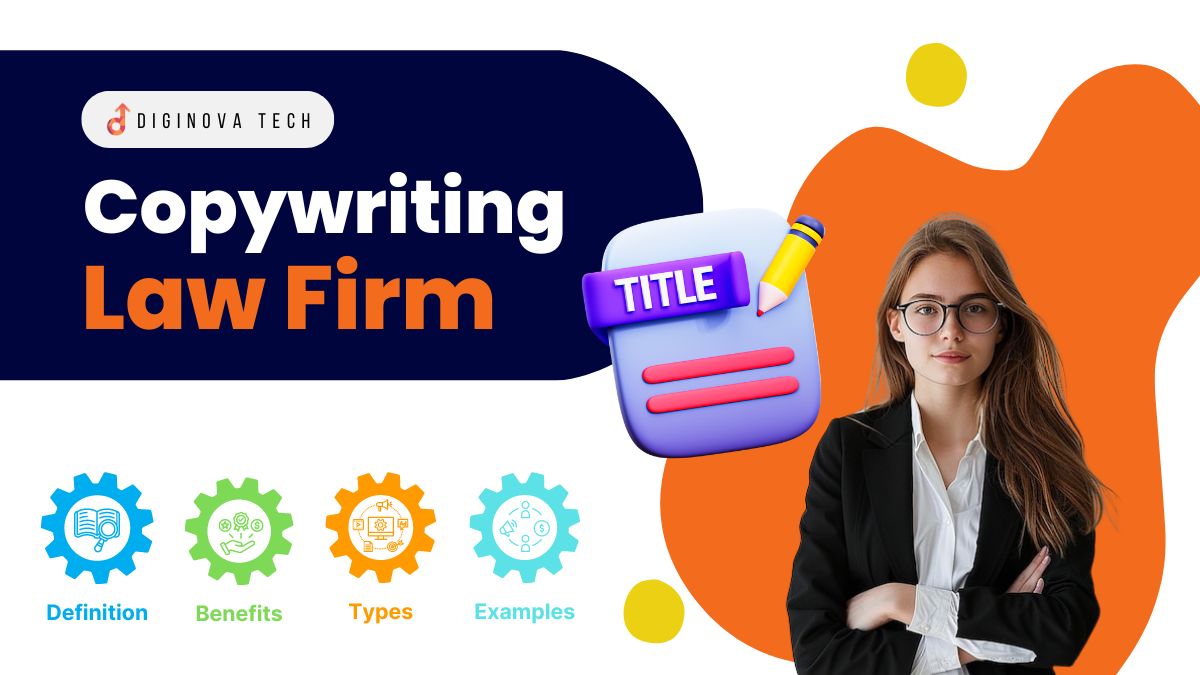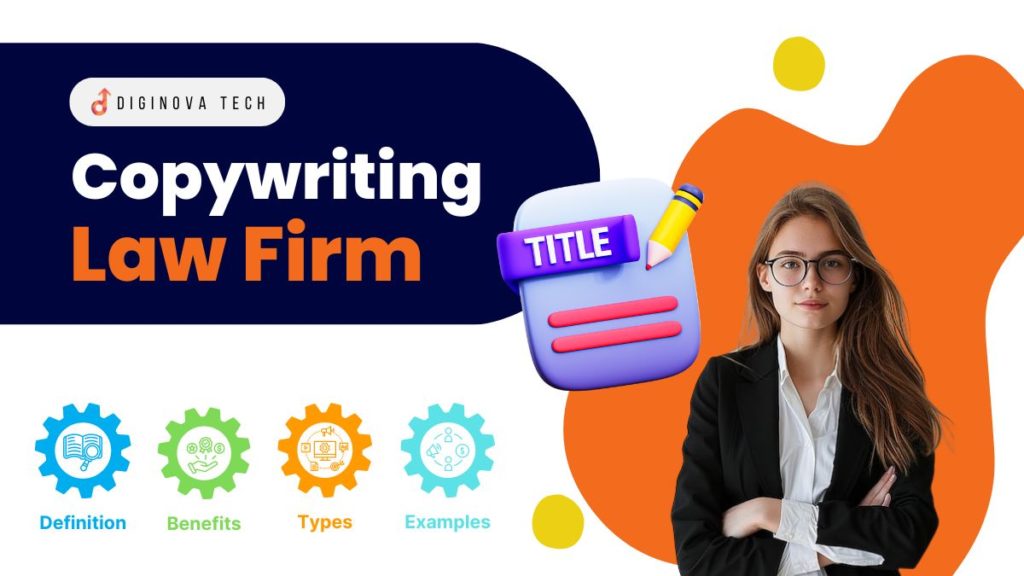
Ever feel like your law firm’s website or marketing materials could be…well, more engaging?
You’re not alone.
In today’s digital world, strong law firm copywriting is key to attracting clients and standing out from the competition.
But what exactly is law firm copywriting, and how can it benefit your practice?
Buckle up, because we’re about to dive into the world of crafting clear, compelling copy that speaks directly to your ideal clients.
What is Legal Copywriting?
Law firm copywriting isn’t just about fancy legalese or writing contracts (although those are important too!).
It’s the art of using clear, concise, and persuasive language to connect with potential clients. It’s about taking your legal expertise and translating it into marketing materials that resonate with your target audience.
Think of it this way: legal copywriting is your chance to have a conversation with someone who needs your help.
It’s your opportunity to explain your services in a way that’s easy to understand and builds trust. It’s about showing, not just telling, why you’re the best lawyer for the job.
Understanding Law Firm Copywriting
Okay, so we’ve established that legal copywriting is important, but what exactly does it look like? Let’s break it down.
Think back to the last time you saw a cool ad online or an eye-catching magazine spread. The persuasive words that convinced you to take a closer look?
That’s the magic of copywriting.
Now, content writing, like the articles you might find on a company blog, focuses on providing informative and engaging content.
But legal copywriting has a specific goal: to connect with potential clients and convince them that your law firm is the perfect fit for their needs.

Here’s the difference: imagine you’re at a party. A content writer might give a fascinating lecture about a legal topic,
but a legal copywriter would pull you aside for a friendly chat, explain how their expertise can help you with a specific issue, and leave you feeling confident you can trust them.
Legal copywriting can take many forms: website content, social media posts, brochures, and even email campaigns.
The key is using clear, concise language that resonates with your target audience. It’s about building trust and showing, not just telling, why you’re the best lawyer for the job.
6 Types of Legal Copywriting
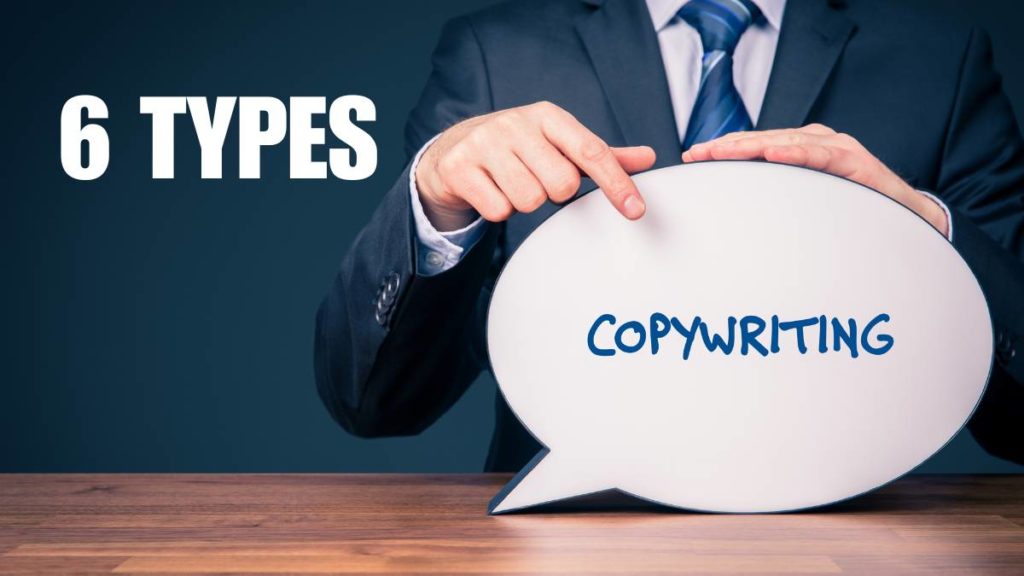
Legal copywriting isn’t a one-size-fits-all approach. Just like different legal issues require different strategies, your copywriting should cater to various platforms and goals. Here’s a quick peek at some of the key types:
- Attorney Website Content
- Legal Blog Copywriting
- Case Studies of Lawyers
- Email Marketing for Law Firms
- Social Media Posts for Lawyers
- Brochures and Marketing Materials
1. Attorney Website Content
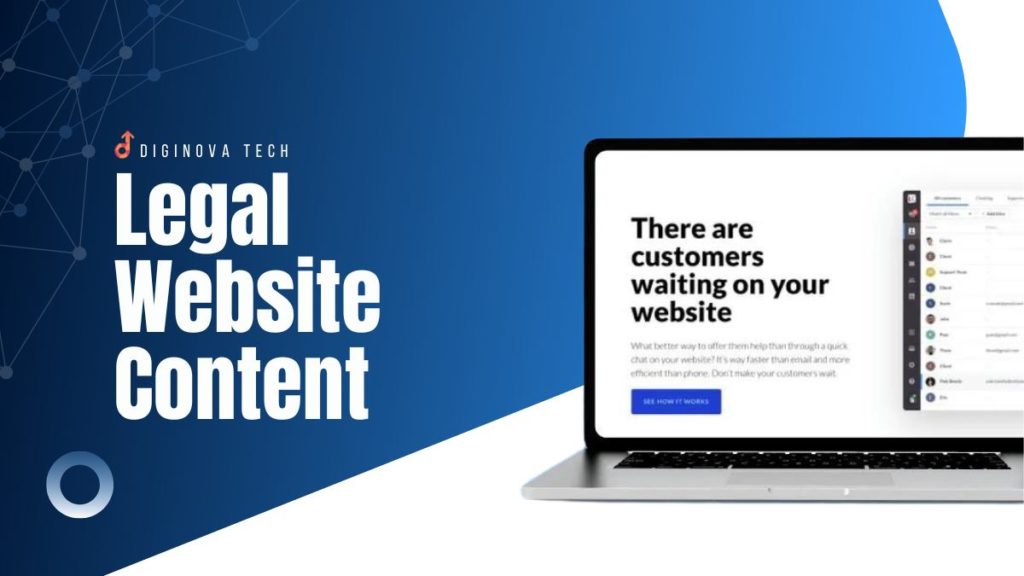
Your website is your digital storefront, and like any good storefront, it needs to be clear, inviting, and informative to attract potential clients.
That’s where legal copywriting comes in. Here’s how strong website copy can elevate your attorney website and turn visitors into clients:
Compelling Headline
Grab attention with a clear and concise headline that explains what type of law you practice and the problems you solve.
About Us Page
Tell your firm’s story! Highlight your team’s experience, qualifications, and what sets you apart from other law firms. Showcase your passion for the law and your commitment to client success.
Practice Area Pages
Clearly explain the areas of law your firm specializes in. Use concise language and avoid legalese that might confuse potential clients.
Client Testimonials
Social proof is powerful! Featuring positive client experiences builds trust and credibility. Let your past clients speak to your expertise and dedication.
Targeted Service Pages
Dedicate individual pages to each legal service you offer. Explain the specific issue the service addresses, how your firm approaches it, and the benefits of choosing your firm to handle their case.
Clear Calls to Action
Don’t leave visitors wondering what to do next. Include clear calls to action on every page, whether it’s contacting you for a consultation, scheduling a call, or downloading a free resource.
Search Engine Optimized Content
Integrate relevant keywords throughout your website content to improve search engine ranking and increase organic traffic. This helps potential clients easily find your website when searching for legal help.
Engaging Content
Informative and engaging content is key. Publish blog posts and articles that address common legal questions and showcase your expertise. This establishes you as a thought leader and positions your firm as a trusted resource.
2. Legal Blog Copywriting
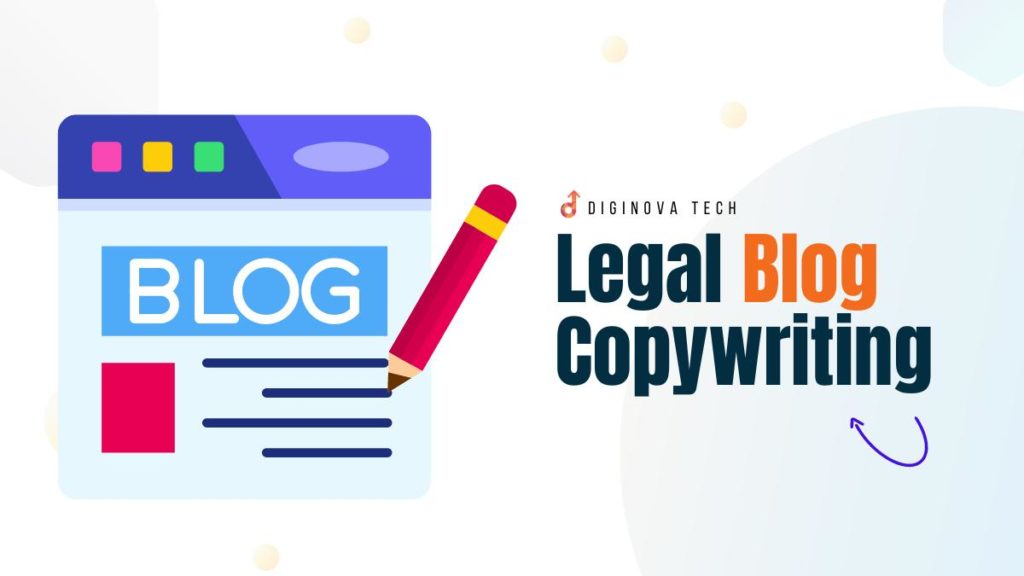
Your website isn’t the only place where legal copywriting shines.
Blog posts are a fantastic way to establish yourself as a thought leader, attract potential clients, and showcase your legal expertise. Here’s how to leverage legal copywriting for your law firm blog:
Informative and Engaging Content
Target Your Audience
Focus on topics relevant to your ideal clients and the legal issues they face.
Break Down the Complexities
Explain legal matters in a clear, concise, and easy-to-understand way. Avoid legalese and jargon that might confuse your readers.
Offer Valuable Insights
Don’t just regurgitate information readily available online. Provide unique perspectives, share case studies (with client permission!), and offer practical advice.
Storytelling Power
Weave narratives that connect with your audience on an emotional level. Explain how legal issues impact people’s lives and how your expertise can help them navigate challenges.
Examples of Engaging Blog Topics:
- Recent legal developments in your practice area.
- Answers to frequently asked legal questions.
- Tips on how to avoid common legal pitfalls.
- The benefits of hiring a lawyer in specific situations.

Informative and Engaging Content
Keyword Research: Integrate relevant keywords throughout your blog posts, leveraging effective keyword research and legal blog writing to improve search engine ranking and increase organic traffic.
Compelling Titles & Meta Descriptions: Craft clear and engaging titles and meta descriptions that entice readers to click on your blog posts in search results.
Internal Linking: Link your blog posts to relevant pages on your website, creating a strong information network for your readers and improving SEO.
3. Case Studies of Lawyers

Shining a light on past successes is a powerful marketing tool for any law firm.
Case studies, crafted with legal copywriting finesse, can showcase your expertise, build trust with potential clients, and position you as the go-to lawyer for specific legal issues.
Here’s how to leverage case studies for maximum impact:
Building Trust with Client Success Stories
Demonstrate Expertise
Case studies allow you to highlight specific legal matters you’ve handled and the positive outcomes you achieved for your clients.
This showcases your expertise in action and builds trust with potential clients facing similar situations.
Client Testimonials
Don’t just tell, show! Include quotes and testimonials from satisfied clients who can speak to your effectiveness and dedication.
Focus on Benefits
While outlining the legal issue, emphasize the positive impact your services had on the client’s life. Did you help them avoid financial hardship?
Win a favorable settlement? Reunite them with a loved one?
Highlighting these benefits resonates with potential clients facing similar challenges.
Confidentiality and Client Privacy
Always prioritize client privacy. If featuring a recognizable client, ensure you have their written consent to use their name and details.
In some cases, anonymizing the client while still showcasing the case and its outcome can be just as effective.
The emphasis should be on the legal issue and the positive outcome you achieved. Specific details about the client can be kept minimal while still conveying the success story.
By crafting compelling case studies that showcase your legal expertise and the positive impact you have on clients, you can establish your firm as a trusted resource and attract potential clients seeking similar results.
4. Email Marketing for Law Firms

Don’t underestimate the power of email!
Legal copywriting can be used to nurture leads, build relationships, and keep your firm top-of-mind with potential clients through targeted email marketing campaigns.
Building Relationships Through Email
Targeted Lists
Segment your email list based on interests and legal needs. This allows you to send highly relevant content that resonates with each recipient.
Informative and Valuable Content
Provide valuable content beyond just self-promotion. Offer legal insights, industry updates, or early access to blog posts.
Conversational Tone
Avoid overly formal legalese. Write in a friendly and approachable manner, fostering a sense of connection with your audience.
Clear Calls to Action
Every email should have a clear next step, whether it’s scheduling a consultation, downloading a free resource, or visiting a specific page on your website.
Examples of Engaging Email Content:
Family Law: “New Legislation Affecting Child Custody Agreements” with a link to a relevant blog post.
Employment Law: “Upcoming Changes to Minimum Wage Laws” with a free downloadable guide on employee rights.
Estate Planning: “Recent Tax Law Updates and How They Impact Your Estate Plan” with a call to action for a free consultation.
Before adding someone to your email list, ensure they’ve opted-in to receive communications from your firm.
Make it easy for people to unsubscribe from your email list. Respect their decision and avoid sending unwanted emails.
By crafting targeted and informative emails that build relationships and provide value, you can use legal copywriting services to turn potential clients into loyal followers and engaged leads for your law firm.
5. Social Media Posts for Lawyers
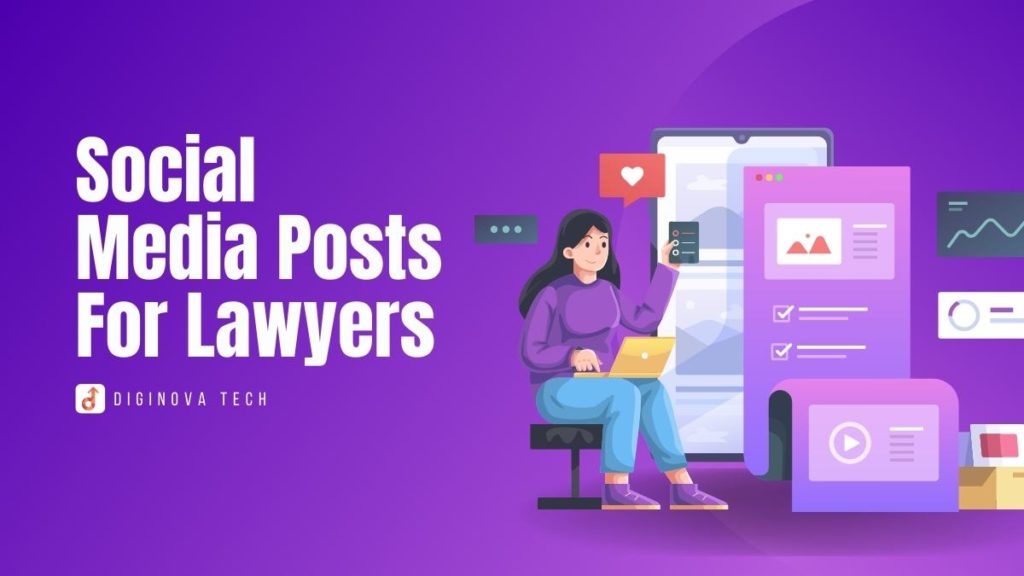
Social media is a powerful tool for connecting with potential clients, establishing your legal expertise, and building brand awareness for your law firm.
But crafting engaging social media posts requires a specific approach.
Here’s how legal copywriting can help you conquer the social media sphere:
The Art of Social Media Copywriting for Lawyers
Attention-Grabbing Headlines
The first sentence of your social media post needs to be captivating. Use strong verbs, ask questions, or highlight a surprising fact to grab your audience’s attention and make them want to read more.
Concise and Clear Content
People scroll through social media feeds quickly. Keep your posts concise and to the point. Avoid legalese and complex legal jargon.
Visually Appealing Content
People are drawn to visuals. Include high-quality images, infographics, or short videos in your posts to boost engagement.
Calls to Action
End your posts with a clear call to action, whether it’s visiting your website, downloading a resource, or contacting your firm for a consultation.
Examples of Engaging Social Media Posts for Lawyers
Twitter (character limit: 280):
- Share a short legal tip relevant to your practice area.
- Ask a question to spark discussion about a recent legal development.
- Retweet and comment on industry news articles.
LinkedIn (longer-form content allowed):
- Publish a short article highlighting your expertise on a specific legal topic.
- Share a case study (with client permission) showcasing a successful client outcome.
- Congratulate a team member on a professional achievement.
Facebook and Instagram:
- Share an infographic outlining key points of a complex legal issue.
- Post a short video offering legal advice or answering a common question.
- Celebrate a legal win for your firm (with client permission!) and highlight your team’s dedication.
“By following these tips and crafting engaging social media posts that inform, connect, and showcase your expertise, you can leverage the power of social media to attract new clients and establish your law firm as a trusted resource.”
6. Brochures and Marketing Materials

In today’s digital age, print materials might seem old-fashioned.
But well-crafted brochures and marketing materials can still be a valuable tool for attracting clients, especially for those seeking a more personal touch.
Here’s how legal copywriting can elevate your brochures and marketing materials:
Clear and Concise Messaging
Target Audience
Identify your ideal client and tailor the content to their specific needs and legal concerns.
Focus on Benefits
Explain how your legal services can benefit potential clients. Don’t just list your services; highlight the positive outcomes you achieve for your clients.
Clear Calls to Action
Make it easy for potential clients to take the next step. Include your contact information, website address, or a call to action to schedule a consultation.
Easy to Read and Navigate
Use a clean and professional layout with clear headings, concise text, and high-quality visuals.
Content that Converts
Brochures:
- Firm Overview: Briefly introduce your firm, its history, and the team’s expertise.
- Practice Areas: Outline the specific areas of law your firm specializes in.
- Client Success Stories (with permission): Briefly showcase successful client outcomes to build trust and credibility.
- Call to Action: Encourage potential clients to contact your firm for a consultation or visit your website for more information.
Marketing Materials
Flyers: Use flyers for targeted marketing campaigns. Keep the message concise, highlight a specific legal service, and include a clear call to action.
Client Newsletters: Share industry updates, legal tips, and upcoming events relevant to your practice area.
Presentations: Craft clear and concise presentations that showcase your expertise and persuade potential clients to choose your firm.
Legal Copywriting Examples
Taking a different approach, here are some examples not of specific copywriting companies, but rather of legal service providers who have leveraged strong legal copywriting to achieve success:
1. Rocket Lawyer

Known for its clear and informative website content, Rocket Lawyer simplifies complex legal concepts for a wider audience. Their sales copy focuses on convenience and affordability, making legal services more accessible.
2. Avvo
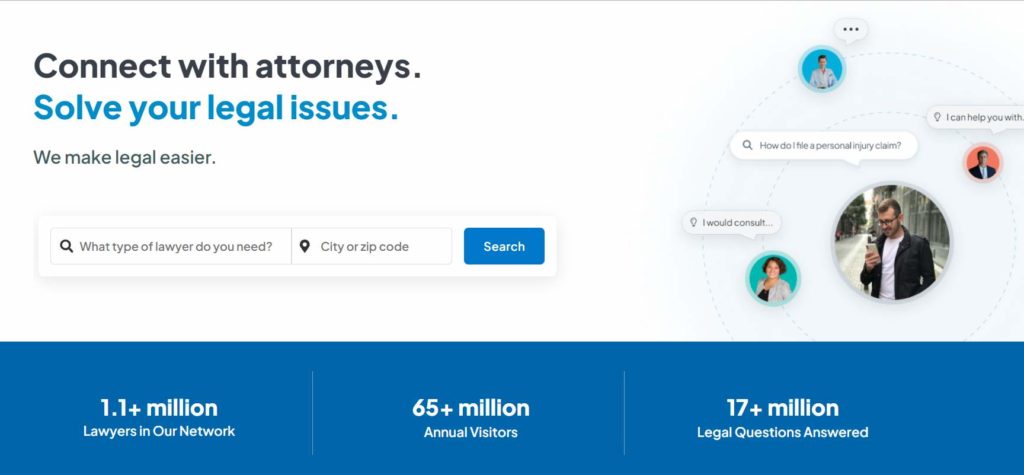
They connect potential clients with lawyers through a combination of informative legal content and lawyer profiles. SEO-optimized blog posts and website copy likely attract organic traffic.
3. LegalZoom
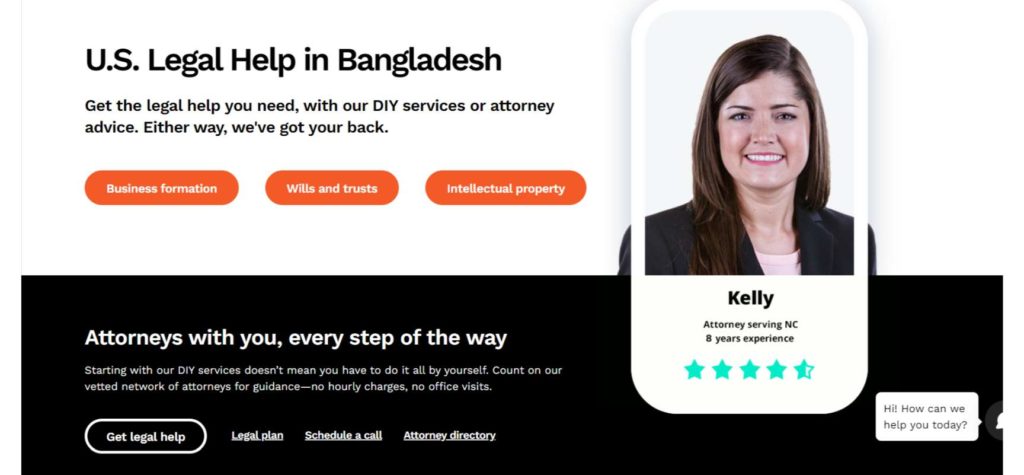
This online legal document provider utilizes clear and concise website copy to explain legal processes and the benefits of their services. Their sales copy focuses on simplifying legal tasks for both individuals and businesses, making legal matters less daunting.
4. UpCounsel
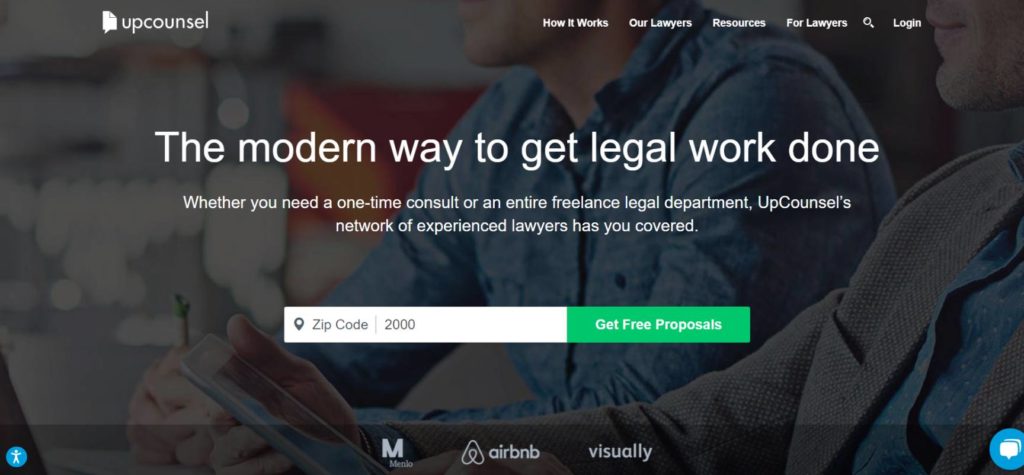
UpCounsel leverages targeted content marketing and strong lawyer profiles to connect businesses with the right legal expertise. Their copywriting likely focuses on building trust and showcasing the value proposition of their platform, highlighting how they can efficiently match legal needs with the perfect lawyer.
5. Clio
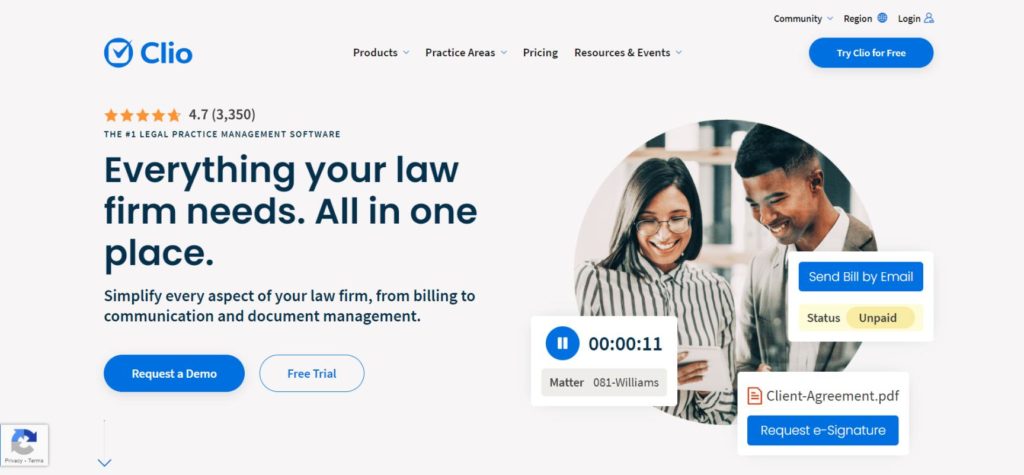
Clio, a cloud-based legal practice management software company, understands the challenges faced by law firms. Their content marketing strategy likely involves blog posts and website copy that address these pain points, while their sales copy highlights how their software can improve efficiency and profitability for law firms.
FAQs
Nope! Online legal copywriting translates complex legal ideas into clear, client-focused messages. Regular legal writing, like contracts, is more formal and technical.
AI can be a helpful tool for legal copywriting, but it won’t create high-quality content on its own. It can assist with tasks like research and content generation, but human expertise is still needed for accuracy, legal knowledge, and creative flair.
Legal website copywriting varies widely in cost ($25-$25,000 per page). It depends on factors like content type, length, and topic.
Similar to general copywriting and content marketing, legal copywriting aims to inform and persuade potential clients. However, legal copywriting focuses on driving immediate action, like scheduling a consultation with a lawyer. Law firm content marketing, on the other hand, builds trust and establishes the firm’s expertise through informative blog posts, articles, and social media content.
There’s no formal education required to be a legal copywriter. However, strong writing skills, an understanding of legal concepts, and the ability to translate complex legal matters into clear and persuasive messages are crucial.
Legal copywriters need top writing & research skills, plus the ability to analyze audiences and legal issues. They also need clear communication and problem-solving skills.
Conclusion
So, there you have it! The world of legal copywriting is vast and offers a powerful tool for law firms to attract clients and showcase their expertise.
From crafting clear website content to engaging social media posts, legal copywriting can transform your digital presence and turn website visitors into valued clients.
Remember, the key is to communicate clearly, provide value, and position your firm as a trusted resource.
By investing in strong legal copywriting, you can elevate your brand and build a thriving law practice.

